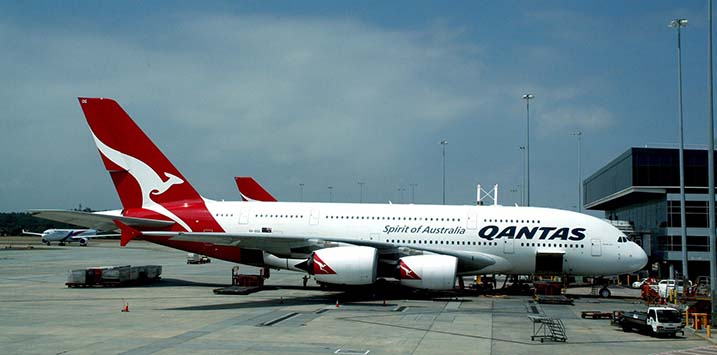
Is Qantas returning to normal, or something better?
Back in May, we wrote about potential investment merit in Qantas, noting that, while airlines do not readily fit into the “exceptional business” category, we could see good reasons why an investor might be attracted to Qantas (ASX:QAN) at the mid-$3 price that prevailed at the time.
In particular, while the timing of a recovery was hard to predict, we thought it was reasonable to expect that a recovery would happen, and that Qantas could be well-placed relative to competitors when it did (original post here).
It has been something of a bumpy ride since then, with strong share price gains in late May and early June followed by a retracement as the second wave in Victoria dashed hopes of a rapid recovery. However, with Australia moving inexorably towards some form of normality through progress on many fronts (including vaccines, but also treatments, contact tracing and other dimensions of pandemic management), QAN shares have done well, having passed through $5 at the time of writing.
This is a big lift in value and represents a full recovery in the enterprise value ascribed by the market to Qantas. While the share price is still materially lower than it was pre-COVID, QAN has in the interim issued several hundred million new shares to shore up its equity capital position, and the aggregate market capitalisation today is similar to what it was pre-COVID. In addition, debt levels are elevated and will continue to rise while the company continues to burn cash. A resumption of domestic travel in the next few months will be enough to reverse the cash burn, but as it stands, Qantas in aggregate is no cheaper than it was pre-COVID.
Interestingly, however, a case may still be made for further upside in QAN shares.
As we noted in May, QAN entered the pandemic in a strong position, with a capable management team, a good liquidity position, and a business that relies more on domestic (which is likely to resume sooner) than international travel for profitability. It also benefits from a strong loyalty business which has continued to generate revenue through the pandemic.
This position of relative strength is important in the context of the pandemic, as it allows QAN to emerge strongly while others may lose ground and market share. The most obvious example of this is Virgin, which fell into administration as a result of the pandemic, and will emerge from it as a smaller, mid-market focused carrier, putting Qantas in a stronger position at both the low cost (Jetstar) end of the market and the premium end.
Less obviously, QAN management has taken advantage of the pandemic to work diligently on permanent changes to its operations and cost structure. An absence of travel has meant that management has been relatively free from distraction as it undertakes this work, and able to implement changes with minimal risk to customer experience. While other airlines will no doubt also have been working to achieve similar ends, QAN’s advantages in terms of management, financial strength and domestic profitability mean that is less focused on fighting to stay alive, and therefore better placed to position strategically for the future.
It remains to be seen just how much of a difference these initiatives may make to QAN market share and profitability, but it is reasonable to think that Qantas’s relative strength going into COVID-19 will prove to be a very valuable asset, and that post-COVID it may be a larger and more valuable business than it had been.
With Australia now moving closer towards normality Qantas shares have done well. Tim Kelley asks, is there further upside for the airline? Share on X